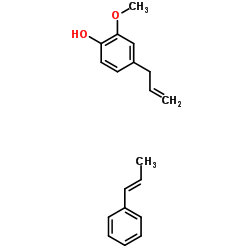Olfactory test performance and its relationship with the perceived location of odors.
Richard J Stevenson, Mehmet K Mahmut
Index: Atten. Percept. Psychophys. 73(6) , 1966-76, (2011)
Full Text: HTML
Abstract
Odors are generally perceived as arising via the nose when sniffed and as part of an orally located flavor during ingestion. The perceived location of an odor may in part be an attentional phenomenon, with concurrent oral stimulation occurring at the expense of access to the olfactory channel. Two predictions were derived from this account: (a) tasks dependent on a capacity to attend to the olfactory channel--odor discrimination and naming--should be adversely affected by oral localization; and (b) tasks not dependent upon a capacity to attend--incidental learning/recognition memory--should not. Using a procedure to generate oral localization, in which odors were presented via the nose with concurrent oral stimulation (sucrose, a viscous fluid or water), greater reported oral localization was associated with poorer odor discrimination and naming, but not with recognition memory performance. These results support the notion that attentional processes contribute to oral localization of odors by reducing the capacity to attend to the olfactory channel.
Related Compounds
| Structure | Name/CAS No. | Molecular Formula | Articles |
|---|---|---|---|
 |
Cinnamon Bark Oil
CAS:8015-91-6 |
C19H22O2 |
|
SLC31 (CTR) family of copper transporters in health and dise...
2013-01-01 [Mol. Aspects Med. 34(2-3) , 561-70, (2013)] |
|
Cinnamon bark oil, a potent fungitoxicant against fungi caus...
1995-12-01 [Allergy 50(12) , 995-9, (1995)] |
|
Zebrafish TRPA1 channels are required for chemosensation but...
2008-10-01 [J. Neurosci. 28(40) , 10102-10, (2008)] |
|
Larval zebrafish model for FDA-approved drug repositioning f...
2014-01-01 [PLoS ONE 9(3) , e90467, (2014)] |
|
Effect of chitosan coatings enriched with cinnamon oil on th...
[Food Chem. 120 , 193-198, (2010)] |